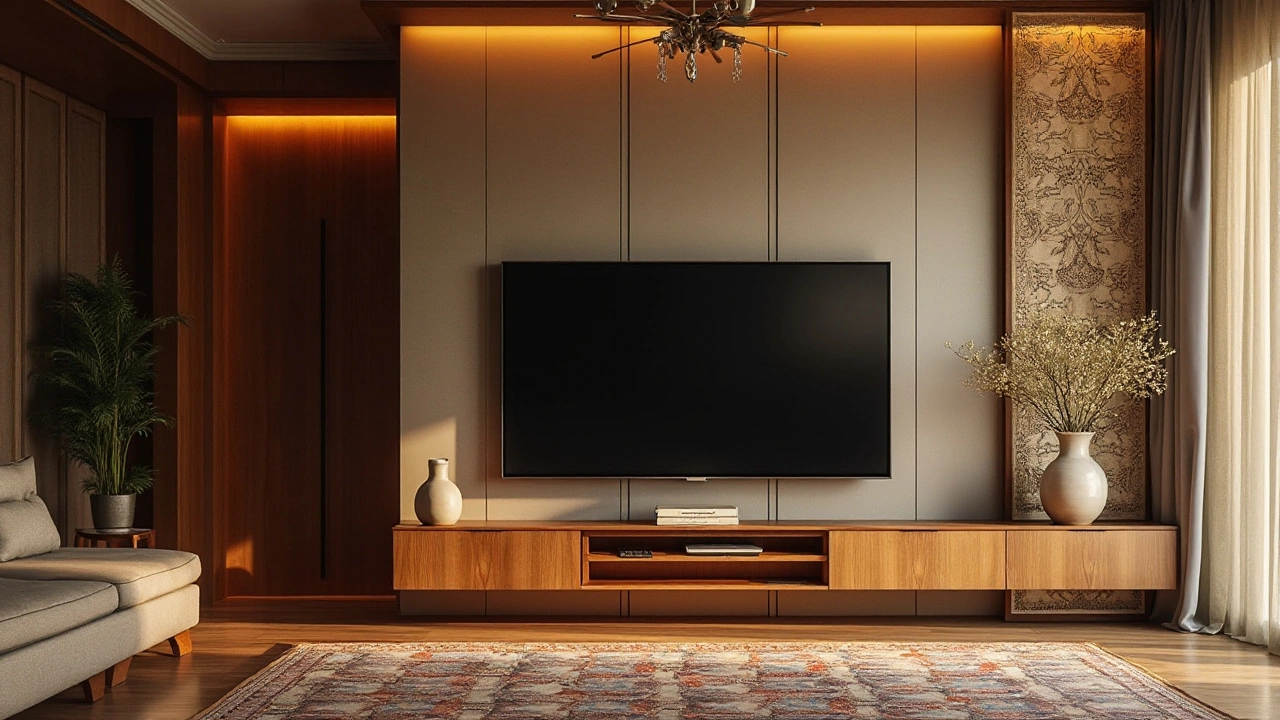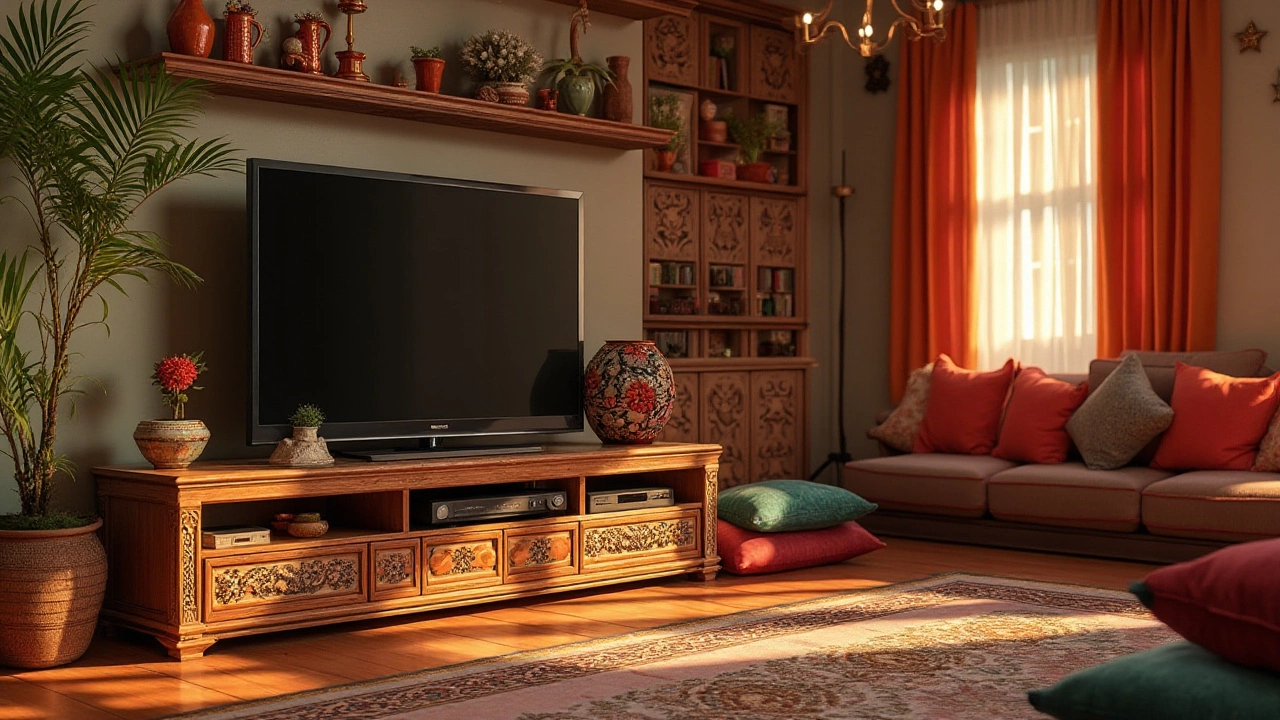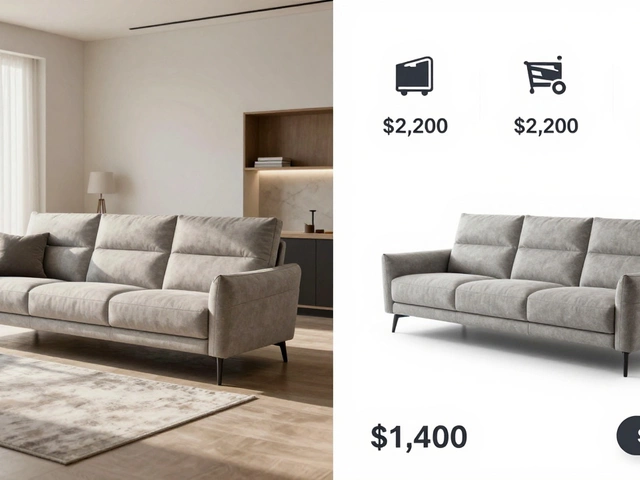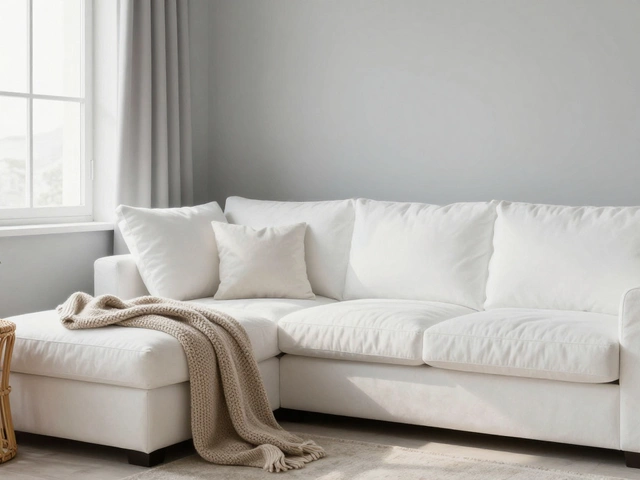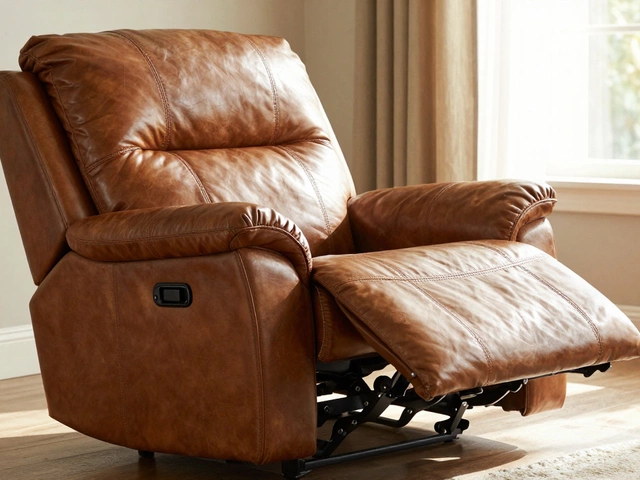TV Placement Tips: Get the Best View Every Time
Ever wondered why some rooms feel right while others make you squint at the screen? It’s not magic—it’s smart TV placement. Below are easy, practical steps that anyone can follow to make the TV feel like it belongs in the room.
Choose the Right Height and Angle
First rule of thumb: the center of the screen should sit at eye level when you’re seated. For most sofas, that’s about 42‑48 inches from the floor. Measure the distance from your couch cushion to the floor, then add half the TV’s height. If the TV is too high, use a low TV stand or wall‑mount bracket that tilts downward. A slight tilt (5‑10 degrees) removes glare and keeps the picture comfortable for long binge‑sessions.
Set the Ideal Viewing Distance
Distance matters more than you think. A simple way to calculate it is to multiply the TV’s diagonal size by 1.5‑2.5. A 55‑inch TV works best at 6‑10 feet, while a 65‑inch set needs about 8‑13 feet. If your room is smaller, pick a TV with a lower resolution or sit a bit closer—but avoid sitting so close that you can see individual pixels.
Another quick check: sit on your favorite spot and draw an imaginary line from your eyes to the screen. If you can comfortably read subtitles without leaning forward, you’re in the sweet spot.
Mind the Light, Not the Noise
Glare can ruin an otherwise perfect setup. Position the TV where windows are either behind or to the side, not directly in front. Use curtains or blinds to control natural light, and keep ceiling lights dimmed or angled away from the screen. If you can’t avoid a bright window, consider an anti‑glare screen protector.
Arrange Furniture for Flow
Your couch, chairs, and coffee table should guide the eye toward the TV, not block it. Leave at least a foot of clearance behind the TV stand for cables and ventilation. If space is tight, a wall‑mounted TV frees up floor area, and a slim console can hold media gear without hogging space.
Don’t forget the audio. A soundbar or bookshelf speakers placed near the TV improve immersion without cluttering the room.
Test and Tweak
After setting everything up, spend a few minutes watching a familiar show. Adjust height, tilt, or lighting until the picture looks natural and your neck stays relaxed. Small tweaks—like moving the TV a few inches left or right—can make a big difference.
Following these simple guidelines will turn any living room into a TV‑friendly space. No need for expensive consultants; a ruler, a tape measure, and a bit of patience are all you need for perfect TV placement.
TVs on a Wall or Stand: Which Looks Best and Why?
Trying to decide if your TV should hang on the wall or sit on a stand? This article digs into the real pros and cons of both setups. You’ll find practical info on style, cord management, safety, and how each choice affects your living space. The goal? Help you choose what actually works for your home and looks sharp. Perfect for anyone wanting their TV area to be both stylish and functional.
TV Stand Solutions: What to Do When You Don't Have One
Got a TV but no stand? You're not alone—modern TVs often outlive their stands or arrive in boxes without one. This article lays out practical and creative solutions to keep your TV safe, stable, and perfectly positioned. We’ll cover mounting options, make-do placements, cheap DIY hacks, and what not to do if you want to avoid expensive accidents. Skip the stress and find a way that fits your space and lifestyle.
Can a 65-Inch TV Safely Fit on a 55-Inch Stand?
Choosing the right TV stand for your large screen can be a challenge, especially when you have a 65-inch TV and a 55-inch stand. This article explores whether this setup is feasible and safe, offering insights into weight capacity, stability, and design considerations. By understanding these factors, you can make informed decisions to enhance your home entertainment experience. This guide also includes practical tips to ensure that your prized television rests securely and stylishly.
The Benefits of Using a TV Stand: Enhance Your Living Space
Deciding whether to put your TV on a stand involves considering both aesthetics and functionality. While wall-mounting TVs have gained popularity, TV stands offer flexibility in positioning as well as storage options. A well-chosen TV stand can also complement the overall design of a room and provide a practical solution for concealing cables and housing audio-visual components. This article explores the advantages of using a TV stand and suggests ways to choose the right one for your living space.


